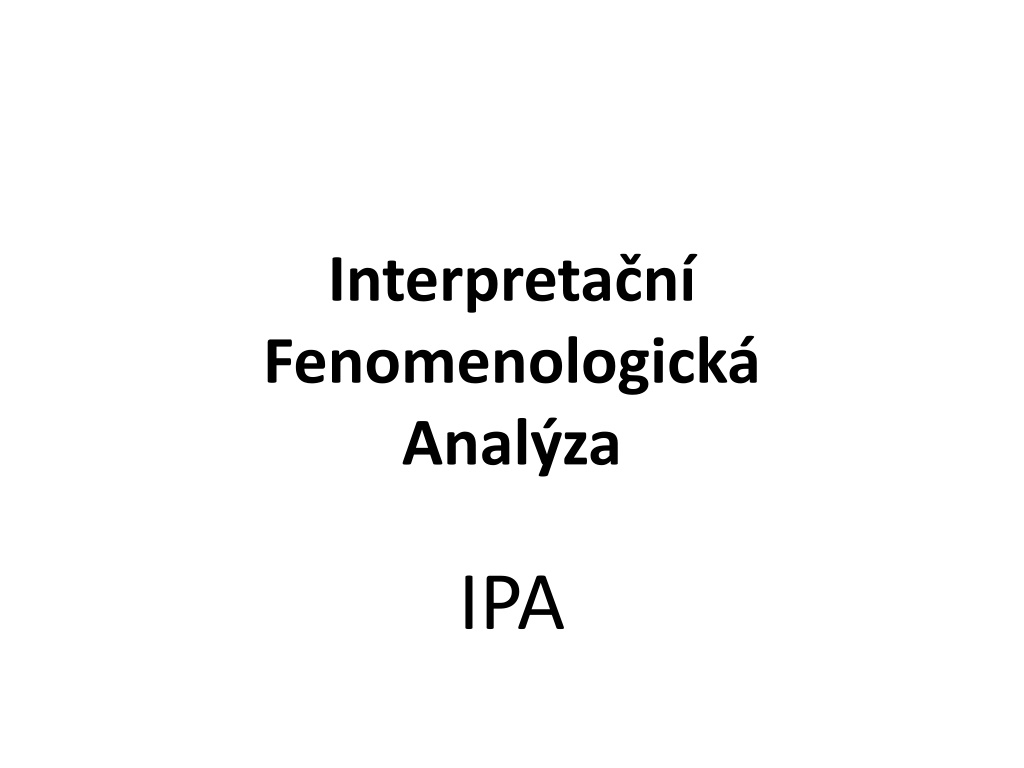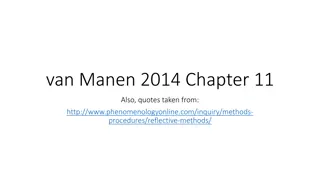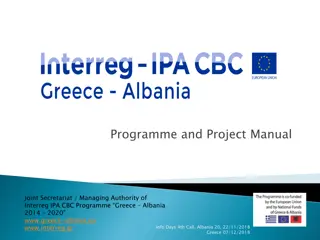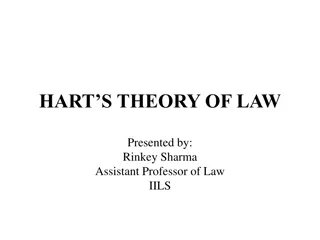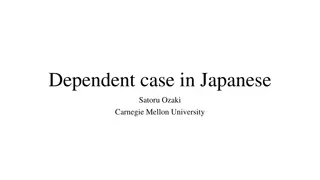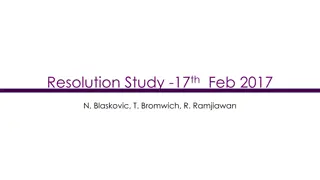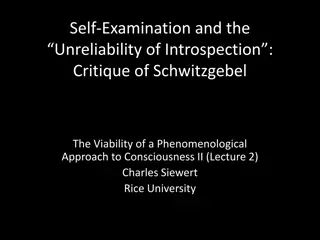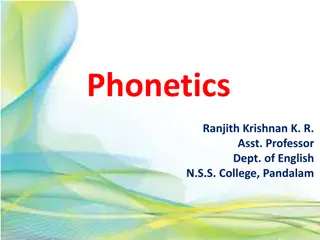Understanding Interpretative Phenomenological Analysis (IPA) in Research
Explore the process and criticism of Interpretative Phenomenological Analysis (IPA) in research, emphasizing the qualitative methodology and its application in understanding life experiences and general themes. Delve into the theoretical foundations, challenges, and recommendations for innovative research practices. Discover the significance of freedom and intersubjectivity in IPA, along with the graphical representation of research themes and the impact of sample homogeneity on analysis outcomes. Evaluation and references provide a comprehensive overview of IPA in the context of scientific inquiry.
Download Presentation

Please find below an Image/Link to download the presentation.
The content on the website is provided AS IS for your information and personal use only. It may not be sold, licensed, or shared on other websites without obtaining consent from the author. Download presentation by click this link. If you encounter any issues during the download, it is possible that the publisher has removed the file from their server.
E N D
Presentation Transcript
Interpretan Fenomenologick Anal za IPA
Pedstaven IPA Kvalitativn metodologie Vznik UK (2009) V razn pou v na metoda (http://www.ipa.bbk.ac.uk/)
Proces IPA P epis a anal za V razn ivotn zku enost Interview Obecn t mata
Kritika IPA Teoretick z klady IPA
Kritika IPA Vdeck standarty Validizace subjektem Zpracov n dat Svoboda-subjektivita v procesu anal zy
Svoboda v IPA (pklady) Nen dn spr vn i patn zp sob prov d n tohoto typu anal zy a povzbuzujeme IPA v zkumn ky k tomu, aby byli v tomto ohledu inovativn . (str. 79) Intersubjektivita v dy V sad analytick ch strategi je zna n prostor pro man vrov n . (str. 80)
To dobr v IPA Grafick zn zorn n obecn ch t mat
To dobr v IPA Homogenita vzorku P edkl d n konkr tn ch v atk z rozhovoru V zkumn k ovliv uje v sledky anal zy Konzultovat s druh mi v zkumn ky
Hodnocen 4 2
Literatura Bernet, R., Kern, I., & Marbach, E. (1993). An introduction to Husserlian phenomenology. Northwestern University Press. Brocki, J. M., & Wearden, A. J. (2006). A critical evaluation of the use of interpretative phenomenological analysis (IPA) in health psychology. Psychology and health, 21(1), 87-108. Flowers, P., Smith, J.A., Sheeran, P. and Beail, N. (1997). Health and romance: understanding unprotected sex in relationships between gay men. British Journal of Health Psychology, 2, 73-86. Giorgi, A. (2010). Phenomenology and the practice of science. Existential analysis, 21(1), 3-22. Giorgi, A. (2011). IPA and science: A response to Jonathan Smith. Journal of phenomenological psychology, 42(2), 195-216. Goodman, S. (2008, July). A dirty dozen: twelve p-value misconceptions. In Seminars in hematology (Vol. 45, No. 3, pp. 135- 140). WB Saunders.
Literatura Goodman, S. (2008, July). A dirty dozen: twelve p-value misconceptions. In Seminars in hematology (Vol. 45, No. 3, pp. 135- 140). WB Saunders. Husserl, E. () Chadwick, P., Liao, L. M. & Boyle, M. (2005). Size matters: experiences of atypical genital and sexual development in males. Journal of Health Psychology, 10, 559-572. Johnson, S., Burrows, A. & Williamson, I. (2004). 'Does my bump look big in this?' The meaning of bodily changes for first time mothers-to-be. Journal of Health Psychology, 9, 361-374. Shaw R., Wallace, L. and Bansal, M. (2003) Is breast best? Perceptions of infant feeding. Community Practitioner, 76, 299-303. Shinebourne, P. (2011). The theoretical underpinnings of interpretative phenomenological analysis (IPA). Existential analysis, 22(1), 16-32.
Smith, J. A., & Osborn, M. (2007). Pain as an assault on the self: An interpretative phenomenological analysis of the psychological impact of chronic benign low back pain. Psychology and health, 22(5), 517-534. Smith, J. A., Flowers, P. , & Larkin, M. (2009). Interpretative Phenomenological analysis. London: Sage. Smith, J.A. (1999). Identity development during the transition to motherhood: An interpretative phenomenological analysis. Journal of Reproductive and Infant Psychology, 17, 281-300. Smith, J.A. (1999). Identity development during the transition to motherhood: An interpretative phenomenological analysis. Journal of Reproductive and Infant Psychology, 17, 281-300. Shinebourne, P. (2011). The theoretical underpinnings of interpretative phenomenological analysis (IPA). Existential analysis, 22(1), 16-32. Smith, J.A. (1999). Identity development during the transition to motherhood: An interpretative phenomenological analysis. Journal of Reproductive and Infant Psychology, 17, 281-300.
